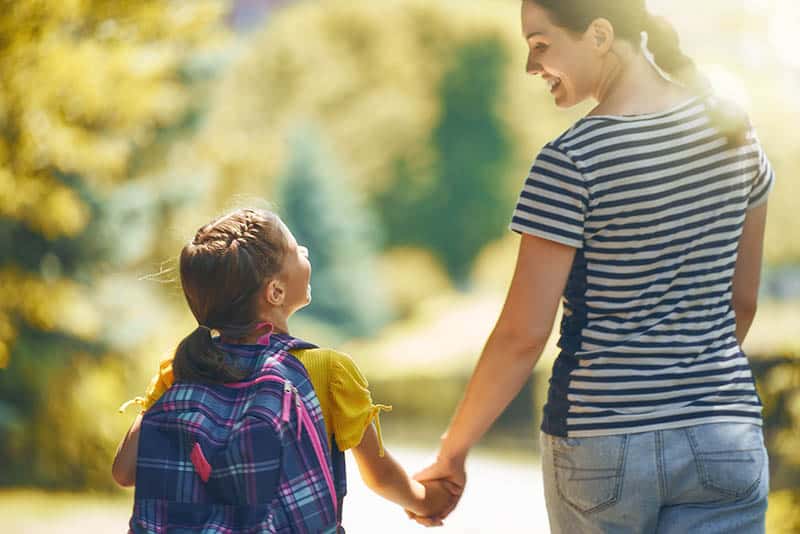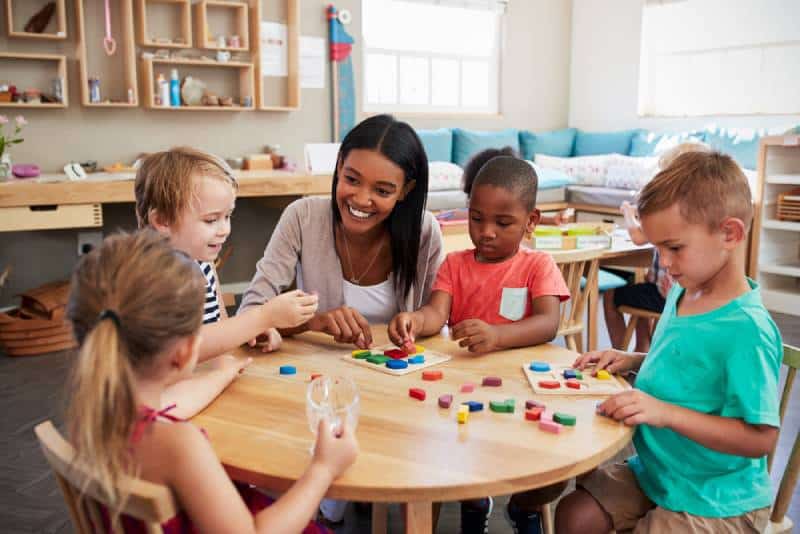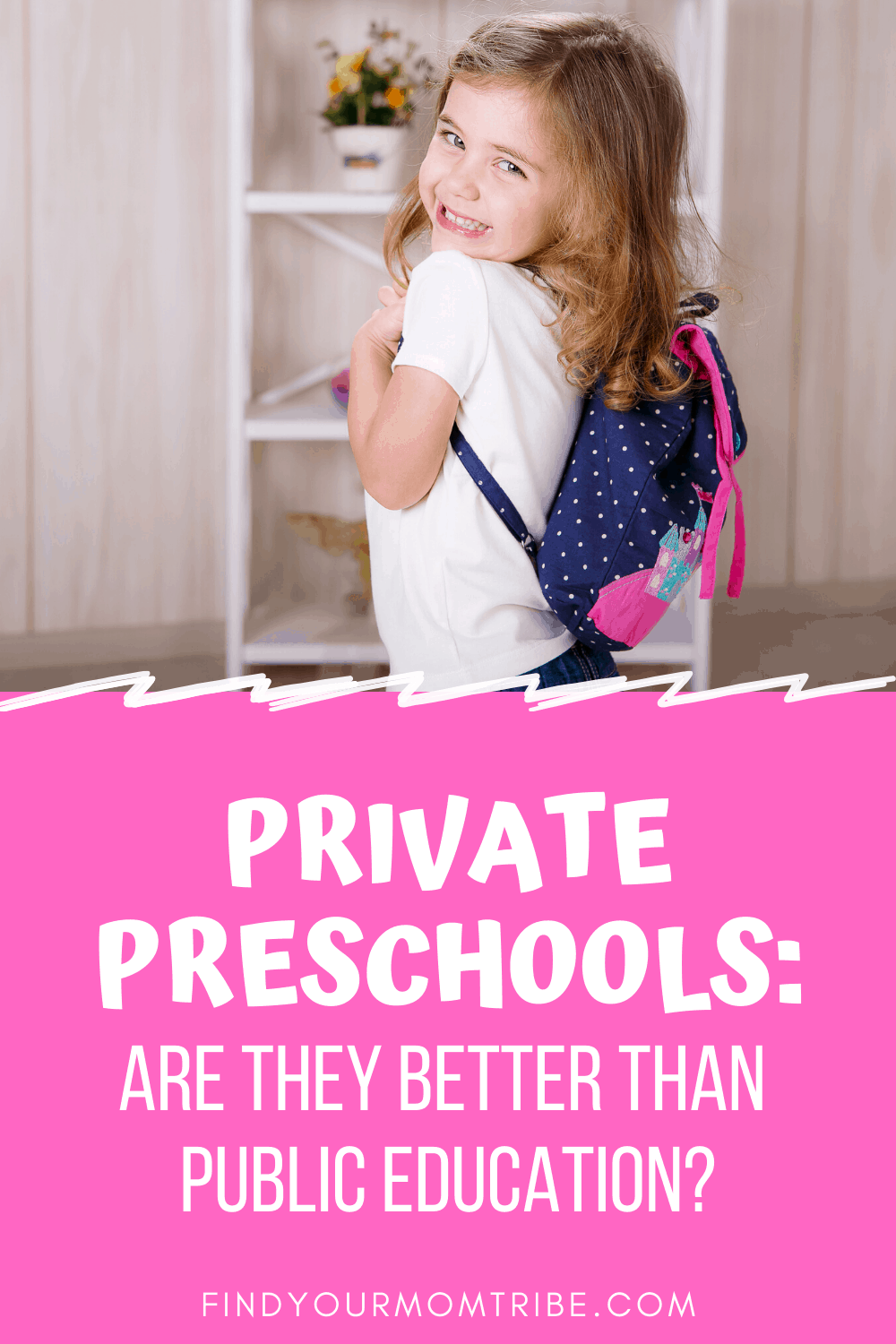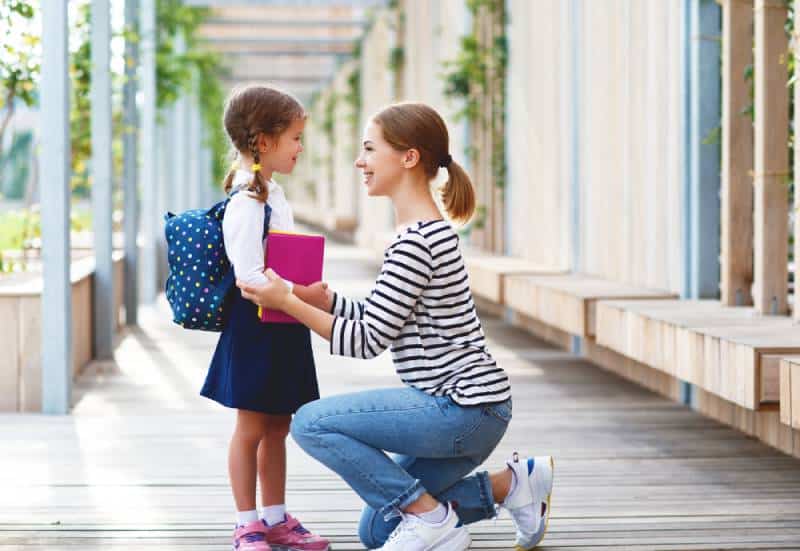A lot of parents often wonder if it’s worth paying for private education, including private preschool and private kindergarten.
Well, despite being a former public educator myself, I can safely say that private schools tend to be a lot better for your child’s academic advancement and early childhood education.
Yes, there’s the caveat that they’re quite expensive, but if we’re looking at it strictly from an academic perspective, we can see that having a more focused staff and smaller class sizes leads to better results overall.
It is private for a reason, after all. They wouldn’t be advertising as such if their learning experience didn’t vastly differ from that of public schools.

Nobody would go to them and pay sizable amounts of money just to get more of the same.
Public schools in the United States, as much as I love them, tend to be a bit overwhelming for the teacher.
There are so many kids and there’s so little time with curriculums being the way they are that you just don’t get to focus on one single child, and no matter how much you try you eventually end up treating them like a mass instead of an individual.
Elementary school still has that personal aspect, where the kids’ still fresh love of learning drives them forward and teachers get to interact with them and motivate them to grow.
After that, though, it all starts gradually falling off.
Why Go To Private School?
While the sheer thought of so much added pressure on your family budget can be sickening at times, it’s well worth it if you can manage it without any major detriment to your lifestyle.
The Pros:
1. Better equipped
Private educational institutions are more devoted to your child and tend to be a lot better equipped than public ones.
That’s not to say that the public institutions are at fault since the funding they get can be dreadful at times, but it’s still a fact that’s readily apparent when comparing the two.
2. Better funded
The fact that private schools are better funded also means that they get to organize more school trips and summer camps, to help your child grow physically and socially as well as academically.
3. More focus on the individual

Most private schools I’ve looked at tend to have teachers who focus on the Montessori teaching method, which focuses on the whole child.
It’s a method of instruction where teachers tend to pay attention to the areas some children might be struggling in and adapt the way they teach to better suit the child.
4. Smaller classes
The above is only possible due to the fact that private preschools have small classes compared to their public counterparts, thus allowing more focus to go into child care and development rather than just the curriculum itself.
It’s an entirely different learning environment and it gives preschoolers a great jump-start in their early education.
5. Safer than public schools
Smaller class sizes also mean a less dangerous environment as well because there’s a lot fewer kids, which means less chance of trouble being caused, especially due to a lack of attention, which certainly isn’t the case.
6. More parental involvement

Another rather wonderful benefit is that parents are more involved in their child’s education process.
Teachers will meet with the parents of their preschool students more often and discuss their progress, often consulting with the parents on how they wish for them to proceed.
Some of them even include parents in the many events that they organize, to better allow the strengthening of the bond between parent and child through their learning process.
The process tends to be similar across all levels of private education; from private kindergartens, elementary schools, middle schools, and high schools.
All function in a similar manner and allow your child a more stress free way of learning.
The Con:
Expensive
But as I said at the start of this, they do end up being quite expensive and, while it sounds like a rather bitter thought, do end up giving the children whose parents can sustain it quite a significant advantage in the future.
That said, don’t bankrupt yourself just to be able to send your child to a private preschool.
Public education, while lacking in certain academic aspects, is still widely available and offers benefits of its own.
RELATED: How To Save On School Supplies: Back-To-School On A Budget
Why Go To Public School?
While I may be tooting the horn of private education quite a lot here, I still haven’t ever considered sending either of my two kids to a private school. It’s too rich for my blood.
A sad, but true fact, and that’s completely fine. Public preschool programs worked just fine for my kids and now elementary school is too.
While yes, there may be less focus on the individual child, none of my kids feel left out of anything.
They’re still doing their best to learn and are excited to look up anything new that they’ve learned at school.
The Pros:
1. The child gets to spread their wings

They don’t really need their parents circling around their heads, even at school.
They get to be free of their parents for a bit and get to come out of their shells, socialize with other kids their age, and grow up.
As much as I’d love to get involved, I trust that that’s not something that would be healthy for my kids in the long run and it would only cause them to become clingy and dependent on me.
2. More chances for forging friendships
The social aspect, for that specific matter, is a lot better in public schools.
Sure, there’s a lot more risk of being bullied and the like, but there’s also a lot more opportunity to make a lot of friends, whereas the social circle in a private school is a lot smaller and it feels hand-picked rather than being given the freedom of choice.
You can’t have a good reward without a little risk involved and that’s just how it is.
Besides, if anything bad happens, they often end up telling us about it and we get to socialize at home instead of finding out about things that happen at school from their teachers.
The Con:
1. More parental responsibility
It puts a bit more pressure on us as parents by giving us the responsibility of asking about school, but it allows us to humanize our kids a bit more and treat them like adults, learning to trust them rather than just their teachers.
To treat them with respect so that they can strengthen their character and boost their confidence, good news or bad.
In Conclusion
As you can see, there are good and bad sides to both tiers of education, one focuses on the individual as a whole and offers a better academic experience at the cost of a lot of money and a more curated social aspect for your kids.
On the other hand, the public focuses more on teaching the masses, sacrificing the strength of said education, while opening the door to a wider scope of acquaintances and friends as well as lowering the amount of pressure put on the child and shifting it over to the parent a bit more.
I’d say it’s up to personal preference, but never ever consider paying for anything if you won’t be able to sustain a proper lifestyle later down the line.
I’ve mentioned this several times, but that’s because many parents made that mistake and ended up living for their kids very early on, even though they still have things to live for themselves.
I do hope this has been an enlightening little article and that it helps you make the choice you believe is right for your little preschooler’s education.
Like this post? Please share or pin it for later. You can also stay in the loop and follow us on Facebook, Instagram or Pinterest.

This post contains affiliate links. Please see our full disclosure for more info.

